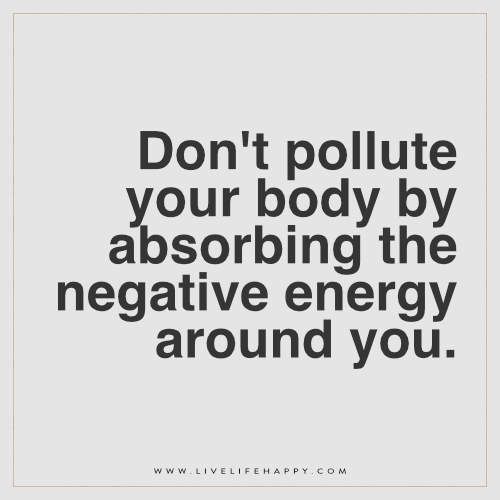Seven Steps To Increase Your Emotional Intelligence
Wellness
Wellness

If you are someone that values genuine connection with others and finds strength in being fully-understood by the people you give your energy to, congratulations! You likely have high emotional intelligence.
In short, emotional intelligence is the emotional equivalent to IQ, or intelligence quotient. It’s often said that having high emotional intelligence, or high EQ, is an even more valuable trait to have (especially in regards to navigating and enhancing interpersonal relationships.) After all, it’s not always implied that a high IQ means one also has a high EQ.

Much of the depth and richness we derive from life is thanks to our capacity to experience, share and empathize emotions with both others and within ourselves. If you think about it, how many things happen in your everyday life that are not affected by or affecting the emotions you experience? That’s one of the delightful, blissful, infuriating, devastating things about this human experience; that much of what most of us experience is painted by emotion.
Not everyone is naturally born with a high EQ, but there is always room for improvement. The human condition craves empathy and unity, so finding the best way to express and receive those things is through flexing our EQ muscles. Here are a few tips to help you achieve that!
1. Limit Gossip:
One of the best ways to hone emotional intelligence is to understand the power of the subject matter we talk about. Verbal communication is one of the most powerful tools humans have. Therefore, it isn’t surprising that gossip or talking strictly about other people simply doesn’t do the trick in improving EQ. Thinking more objectively about our world, thinking about ideas and wanting to learn and question the world we live in helps bring out positive, endorphin-inducing emotions, and one can’t help but share those good emotions with others.

2. Know The Brain/Gut Connection:
Our physical and emotional bodies are inextricably woven. There is a proven relationship between our mood and the food we eat. With this in mind, choosing to eat foods that are nutritious and wholesome, foods lacking in refined sugar and saturated fats, dare we even say, incorporating a plant-based diet, can do so much for not only your emotional awareness but the good of your body and mind in general.
3. Reduce Personalization:
Often when engaging with others, we have a tendency to internalize their actions and behavior towards us. Don’t be too quick to take another person’s negative behavior personally. You can never really know the other person’s situation. So if they cancel plans, seem stressed or have an overall bad mood, remember their lives primarily revolve around themselves. Express empathy towards the individual if they matter to you, otherwise practice letting things roll off your back. You have partial control over the energy of this situation. Most often how we perceive a situation is based around the attitude we create about it in the first place. Be quick to let circumstances and energy go that isn’t serving you. Go with the flow.

4. Give Yourself A Moment:
Some of us have a deeply engrained habit to become very reactive towards people and circumstances that upset us, giving our entire bodies an endocrine rush. Remember that if this happens to you, our minds can reconcile a solution before our bodies can sometimes. The endocrine system works at a slower pace. You are entitled to the time and space it takes to come back to center. Focus on your breath and hold your thumb and middle fingers together. Be aware of your unsettled state, but that you will feel well again soon. There is much power in honing your emotional being. Do not reject it; it is an inextricable part of who you are. Face it fearlessly.

5. Practice Objectivity:
Giving yourself five minutes a day to observe your corporeal body can do wonders for your EQ. It’s a bit more difficult to detach from an emotional situation, so start somewhere simpler. Set an alarm once or twice a day in your phone. When it goes off, take a mental note of how you are feeling, but in an objective way. This means approaching your emotional state openly and honestly with no judgment. Remember every feeling you have is relevant. There is no “wrong” feeling, just misdirected feelings. The more time you give per day or week to observing and acknowledging your emotions, the more clarity and resolve you will find. Strengthening your EQ is like strengthening a muscle, give it a little exercise everyday and it will become stronger.
6. Honor Yourself And The Space You Occupy:
Give yourself some time and space in places that help you feel calm. This can do wonders. Just think, people who spend almost all of their time in situations that make it hard to reflect and relax get burnt out and often break down. Consider creating spaces in your home that calm you, allow yourself some exercise or time in nature. It is difficult to be on our top emotional game when we are constantly in surroundings that demand it. Your EQ needs some time to recharge.

7. Anything Worth Having Takes Time:
Making the commitment to any new routine, or any new intention that has not been previously carried out consistently takes some time. Taking steps to improve EQ often means making small changes, becoming self-aware more and more and incorporating new habits and spaces into our daily lives over time. It is a lifestyle, becoming more emotionally connected to ourselves. Cultivate your emotional strength. Over time you will reap the benefits.
Article Contributed By Jenna Wroblewski
Art by Trisha Thompson Adams
